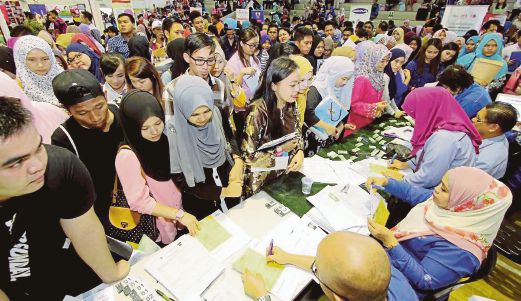THE “State of Households II” report, released by the Khazanah Research Institute, indicates the rising rate of unemployment among those in the 20-to-29 age group.
The unemployment rate for those between 25 and 29 last year was at 3.5 per cent, exceeding the national unemployment rate of 3.1 per cent.
Youth unemployment and labour market issues do not get much attention because the economy’s “health” is commonly gauged by looking at the national unemployment rate, which is not a perfect measure of the labour market’s performance . It is an aggregate indicator that hides many issues.
The rising youth unemployment rate correlates with the increasing skills mismatch in the labour market. The mismatch occurs when low-skilled jobs are held by people with high academic qualifications.
There is a high level of skills mismatch in Malaysia, particularly in the “clerical support workers” and “service and sale workers” categories. Twenty-four per cent of workers in the first category have diplomas and bachelor’s degrees. Of the total, 13 per cent are between 20 and 29.
Economic growth has a limited effect in reducing the mismatch. Between 2011 and 2014, our gross domestic product expanded by 5.4 per cent per annum on average.
But, the number of workers with diplomas and bachelor’s degrees in the “clerical support workers” category increased by four per cent, from 20 per cent in 2011 to 24 per cent in 2014.
Our economy is not efficient in creating jobs needed by youth. This inefficient labour market calls for serious public attention.
Skills mismatch is a sign that jobs created in the economy are not the ones needed by people. There is a need to identify whether this is because of structural problems or other forces, such as graduates’ employability.
The government should pay specific attention to youth unemployment and labour market problems by addressing them in the 2017 Budget. Strategies and efforts to reduce youth unemployment and skills mismatch must be carefully addressed because they correlate with socio-economic issues.
Skills mismatch implies that workers are paid low wages when they should get better payment, given their academic qualifications. Directly and indirectly, low wages contribute to the welfare loss caused by the high cost of living.
DR MOHD YUSOF SAARI, Faculty of Economics and Management, Universiti Putra Malaysia





